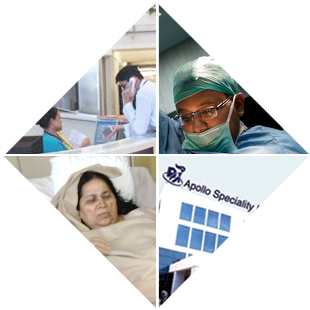
Hydrocele Operation Adult
What is it?
A hydrocele is a collection of clear fluid in a thin walled sack
present in the scrotum around one or both testicles. Sometimes
this is because the testicle is diseased. More often it is
because the liquid cannot drain during the circulation properly.
In a child, the cause of the hydrocele, and its treatment, are
different.
The Surgery
Most patients have a general anaesthetic so that they are
unconscious throughout the surgery. Sometimes the operation can
be done by an injection of local anaesthetic in the back which
will numb the area from the waist down. An incision is made into
the skin over the hydrocele. The liquid is drained out. Some of
it will be checked for the possible presence of bugs and some of
it in order to exclude the presence of cancerous cells.
The testicle is examined. If it is all right, the double
coverings of the testicle are stitched up, to stop the liquid
building up again. If the testicle is infected, it may be
necessary to remove it. This will be discussed with you before
the operation. Finally, the skin is stitched up. The operation
can either be done as a day case, discharging you on the very
same day of the hospitalization, or as an inpatient case, if you
are over 50, having trouble passing urine, have other illnesses,
or if you cannot manage at home.
Any Alternatives
If you leave things as they are, the hydrocele will slowly get
bigger. It will not be certain why there has been a buildup of
fluid unless you have an operation. The fluid can be drained out
using a needle, but it builds up again in a month or two. There
is no injection treatment that works well.
Before the operation
Stop smoking and reduce the weight if you are overweight. (See
Healthy Living). If you know that you have problems with your
blood pressure, heart, or lungs, consult your physician and ask
him to check that these are under control. Check the hospital's
advice about taking the Pill or hormone replacement therapy
(HRT). Check you have a relative or friend who can come with you
to the hospital, take you home, and look after you for the first
week after the operation. Sort out any tablets, medicines,
inhalers that you are using. Keep them in their original boxes
and packets. Bring them to the hospital with you.
On the ward, you may be checked for past illnesses and may have
special tests to make sure that you are well prepared and that
you can have the operation as safely as possible. Please tell
the doctors and nurses of any allergies to tablets, medicines or
dressings. You will have the operation explained to you and will
be asked to fill in an operation consent form. Many hospitals
now run special preadmission clinics, where you visit for an
hour or two, a few weeks or so before the operation for these
checks.

